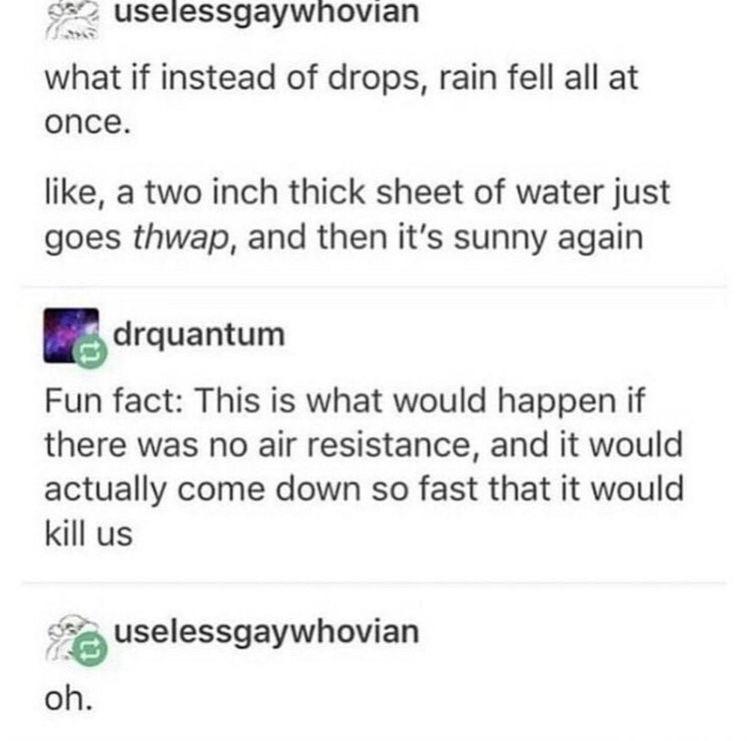this post was submitted on 16 Oct 2023
600 points (98.2% liked)
tumblr
3411 readers
582 users here now
Welcome to /c/tumblr, a place for all your tumblr screenshots and news.
Our Rules:
-
Keep it civil. We're all people here. Be respectful to one another.
-
No sexism, racism, homophobia, transphobia or any other flavor of bigotry. I should not need to explain this one.
-
Must be tumblr related. This one is kind of a given.
-
Try not to repost anything posted within the past month. Beyond that, go for it. Not everyone is on every site all the time.
-
No unnecessary negativity. Just because you don't like a thing doesn't mean that you need to spend the entire comment section complaining about said thing. Just downvote and move on.
Sister Communities:
-
/c/TenForward@lemmy.world - Star Trek chat, memes and shitposts
-
/c/Memes@lemmy.world - General memes
founded 1 year ago
MODERATORS
you are viewing a single comment's thread
view the rest of the comments
view the rest of the comments

They mentioned a 2 in. thick sheet of rain falling, which is ~288 cubic in. per 1 foot x 1 foot area, about 10 lbs of water. Falling as a flat sheet at terminal velocity would hit you with a force of 127 newtons. What that means as far as injuries go I have no idea. I'm sure it'd cause a nasty headache at the least though.
Fair warning, I'm terrible at math so I could be completely wrong
Terminal velocity is only as fast as it is because of air resistance. With no air resistance, the only limiting factor of speed is starting height.
It’s like the experiment with the feather and the hammer they did on the Moon.
I did tweak the drag coefficient while doing the math but I had no idea how to figure out what would be most accurate. The number I got there is with a drag coefficient of 1
Energy would be better to look at than force, since at any distance the force is the same (mass and acceleration aka grsvoty are both static)